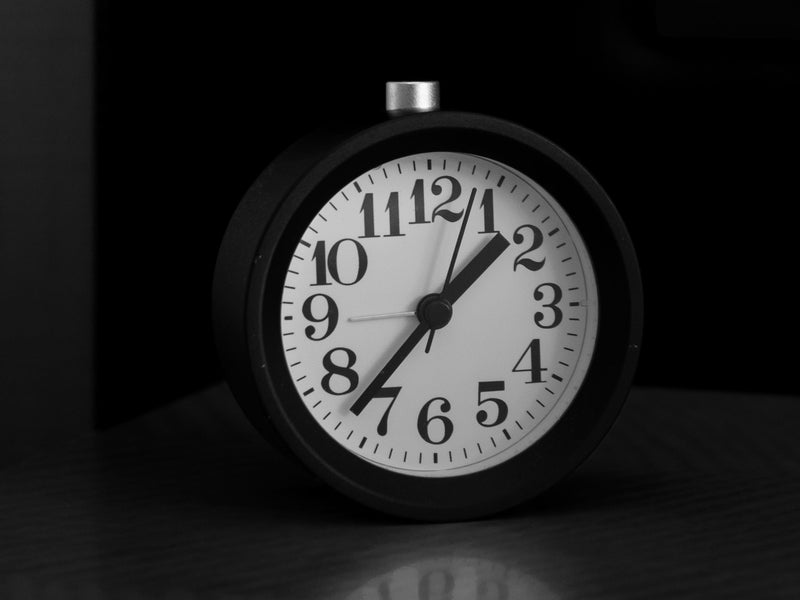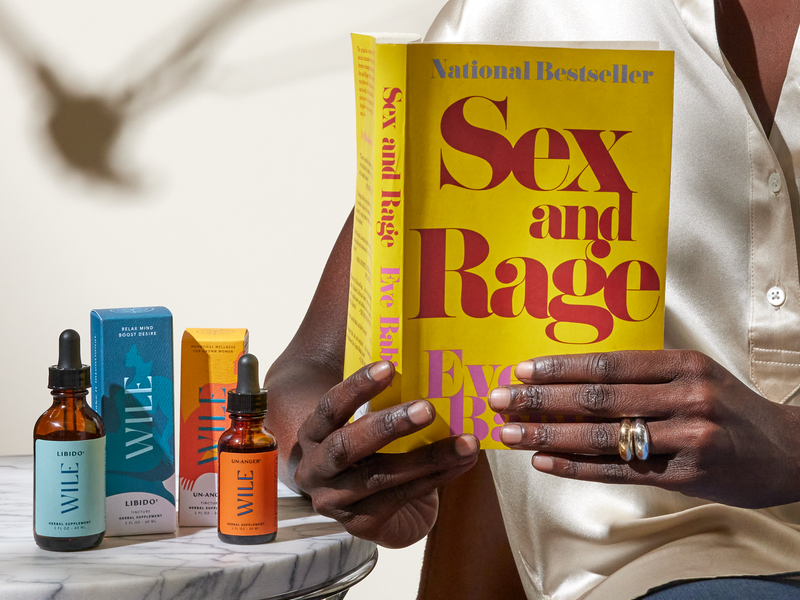Hear "midlife crisis" and the clichés come easy: A sportscar or motorcycle, age- and/or life-inappropriate girlfriend, little blue pill.
Ah yes, and it’s decidedly male.
There is no popular conception of a female or non-male midlife crisis. The culture accepts that men (especially financially successful men) hit a wall after a couple of decades of the career and family that restricted their true selves. It’s understood why some may seek to recapture a taste of the freedom, hedonism and self-seeking of youth.
The culture and existing power structure also accept–indeed, often rely upon—the rest of us slogging through, continuing to work hard and sacrifice dreams, joys and desires for those who rely on us. It’s a given there’s little space for existential crisis between caregiving, pedicure upkeep, work email and figuring out dinner. And it’s conditioned that for women, caregiving roles are supposed to fulfill us - be it in kids, marriage, extended family, work, even pets.
But buried in the data, friend groups and our own surveys are clear evidence women do ask the big questions.
In our survey more than 50% of midlife women told us:
“I’m not done yet. I’m meant for something more.”
The other interesting element of a possible female midlife crisis? The male construct is a grasp to relieve “youth.” Many women say they would not want to go back to their teens or early twenties.
To us, this calls for an Awakening, an evolution into our truest selves. Not a regression.
But first, let’s validate the “is that all there is”-ness many of us wrestle with after 40, 45 or 50.
The Midlife Happiness Dip Is Real. And Un-Gendered.
The mid-life happiness dip is well-documented. Most recently, a paper analyzed data in affluent countries and found even when adjusted for gender, children in the home and other factors, there’s a lower point in life satisfaction that hits in midlife. For women and men.
Invisible or Miserable? No thanks.
The one thing society will let “older” women be, besides invisible? Burdened.
In 2017, Ada Calhoun published an article in Oprah called “The New Female Midlife Crisis,” followed by a book called “Why We Can’t Sleep.” Both detailed the particularly tough pressures on midlife GenX women.
The article flew across group texts like high school gossip. It was best read in small sips, lest dread and fear completely take over.
Data analysis in a SWAN study also reports what many of us know: women are particularly challenged by work-life balance, caring for aging parents, changing relationships and financial security.
While there’s truth to all of it, it’s time for a new narrative. How we frame our reality is the basis of cognitive therapy, positive thinking and many mindfulness techniques like loving kindness.
From Crisis into Opportunity: The Awakening
The same SWAN analysis on midlife women indicated two encouraging things:
- Women consider midlife a critical point for “re-discovering self.”
- Despite the gloom and doom talk of hormones, “Few women mentioned menopause as the most challenging aspect of their lives.”
In fact, the hormonal shifts of perimenopause can be a catalyst for a powerful new awakening of self as the currents bring us inward and shake up that patterns of thought, feeling and life as we’ve been living it for a while.
“In older societies, menopause was a time when we became Wise Women, sometimes called the time of wise blood,” explains Dr. Jillian Stansbury, Wile medical advisor and naturopathic physician. “As children left the nest and completed work of birthing, nursing, tending to others she had more time and energy for herself. And the old ways believed that without the cycles of menstruation, there was less depletion. Less energy output. Women didn’t lose power, they gained it.”
Wise blood made her a more potent creative force, a power in the community and someone to seek counsel from, not just care and feeding.
The hormonal shifts can help us on this deep turn inward.The PMS, mood shifts and more are often compared to a second adolesence. Why not reclaim this as a similar time of redrawing boundaries and self?
We see ourselves differently and tune into our bodies, emotions and feelings again. After a long season of tending to the needs of all around us, we are drawn back in.
How to Turn “Crisis” Thinking into Awakening Action
There are common patterns we struggle with. Here are some ways to turn them into a more positive orientation.
From: Who am I?
To: Who do I want to be?
We have 30+ great years ahead. To get here, we may have turned down parts of ourselves to get along, get ahead, or get by.
Now that we know ourselves better, maybe did some therapy and have hormonal shifts that make people pleasing and others’ opinions less compelling, reset.
They used to talk about dance like no one’s watching. Well, if the culture thinks of us as invisible, we can dance as big as we want.
Prompt:
Take out a fresh journal page - or life coach session - and map out your ideal day, week or life. What would make the biggest difference? Use social media for good by following people who’ve made those changes to reprogram your safety brain to understand it is possible.
From: Other’s Standards & Perfectionism
To: Personal Stretch
The other benefit of that whole hormonally induced “care less about what others think” phenomena? Re-examine the pressures and standards you’ve been trying to live by. Are they truly yours? Or were they conditioned by family, employers, peers, the Joneses?
More than men, women are conditioned to seek perfectionism, constantly self-improvement and to look to others for approval and acceptance.
Prompt:What are you keeping up with that you don’t actually want, value or need? What can you let go of? What essential parts of who you are (or were) do you want to get back?
From: Is that all there is?
To: Consciously Build Meaning
Late career shifts often involve working for something with greater meaning or impact, more time for volunteerism or a return to hobbies that feed the soul vs the rat race.
Prompt: What is one thing that could bring greater meaning or purpose to your life?
From: Woulda, Coulda
To: Letting Go of Outgrown Dreams
Today’s “you” may be used to a hanging on to an old dream like a college tshirt, but it may be just as worn out.
Did we make the best choices? Sometimes, but we did the best that we could at the time. And what's done, is. Regret and what-if can seep in as things change. You may have more time to question the past or triggers like milestone birthdays or seismic life events.
At this point, we know ourselves well so re-evaluation is in order. Sometimes our values and priorities have changed past the point where we’d even want to take the road not taken.
Owning a bar in Mexico may seem fun, while you’re vacationing in Mexico. But would you really want to be tossing out tourists at 2 am?
Realistically, was it ever really “you” to travel the world with a backpack? Stick out med school? Wait tables while hitting 4 auditions a day? Manage a brood of kids—or chickens? Be with that person who was totally not right for you?
Let go of old dreams to make way for new ones.
Prompt: What “woulda coulda” has been dragging you down? Go Marie Kondo on it, thank it and let it go!
From: Unmoored
To: Reconnected
Loneliness or isolation can be a thing in midlife after busy careers, moves and family lives have pulled us out of the “bottomless brunch” rhythms of the 20s and even 30s.
The Awakened Woman realizes there are a lot of others like us.
And that having a broad network of people of different ages and lifepaths can expand.
Prompt: Reach out to old friends you’ve lost touch with. At worst, you hear nothing. At best, you pick up. Many of us are waiting for someone else to make the first move.
Find a new network through shared passions, from dog parks to book groups. Neighborhood groups, volunteer opportunities and even reviled apps like Next Door or Bustle can be used to connect to new people.
From: Rumination
To: Re-Writing
Writing a new story - literally - has been shown to improve life outcomes.
Couples who worked through issues via writing improved their relationship happiness more than those who didn’t. Reflecting on obstacles and assessing them has helped improve grades and drop-out rates of college students, too.
Prompt:Grab a notebook (or notes app) and write about where you’re at and your vision for the next stage.
From: Breakup
To: Breakthrough
Add to all that, data indicates many cataclysmic midlife shifts that do cause stress often end positively for women. Like divorce.
For example, a UK-based survey showed twice as many women than men are happier, have less stress and higher self-esteem post-divorce.
Prompt: Skip the old "lonely divorceé" cliche if you are facing relationship changes.
From: Stressor
To: Challenge
Midlife has unique stress and a lot of it —which is why we have stress management built into our drinks, tinctures and have a daily Women’s Stress capsule as well as in our Period Support formula. Adaptogens, herbs, nervous system support - it all adds up to give just that little extra support we need.
But again, perspective can help too. The SWAN report itself acknowledges that framing matters:
“One approach to understanding experiences midlife women find most salient is inquiring about challenges they face. “Challenges” refer to experiences that require great physical or mental effort and determination that test one’s strength, skill, or ability. In comparison, a stressor is a stimulus or threat that places real or perceived demands on the body, emotions, mind, or spirit of an individual. The word challenge, used in this study, is a word embroidered with strength and courage, allowing for the possibility that all challenges may not be perceived as stressful or appraised as negative.”
Midlife is a challenge. So is awakening. Few of us love hearing that alarm go off in the morning. But it’s what lets us see the sun, move, love and make a difference in life.
Here’s to the wake up call.
This article is intended for informational purposes and is not intended to replace a one-on-one medical consultation with a professional. Wile, Inc researches and shares information and advice from our own research and advisors. We encourage every woman to research, ask questions and speak to a trusted health care professional to make her own best decisions.




